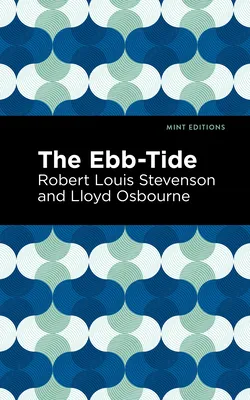The Ebb-Tide (1894) is a novel by Robert Louis Stevenson and Lloyd Osbourne. Published the year of Stevenson's death from tuberculosis, the last of three collaborations between the legendary Scottish storyteller and his stepson is a story of adventure, friendship, and greed. Although less popular than other titles in Stevenson's body of work, the novel has been recognized for its pointed critique of British and American imperialism in the South Pacific. Tossed by the waves of fate, three beggars frequent the ports of Tahiti in search of money and food for survival. When a merchant schooner devastated by smallpox docks at Papeete in need of new officers, the only men willing to take the job are Davis, Herrick, and Huish. A former sea captain, Davis takes charge of the vessel filled with crates of champagne, but soon the men find their cargo too tempting to leave untested. As the crew descends into drunkenness, Huish--the only beggar born into poverty, the only one among them who understands the value of a job--takes control of the schooner. As they near their final destination, as the men begin to worry about the missing cargo and lack of food, a plot to overthrow the officers takes form. With a beautifully designed cover and professionally typeset manuscript, this edition of Robert Louis Stevenson and Lloyd Osbourne's The Ebb-Tide is a classic work of adventure fiction reimagined for modern readers.
Robert Louis Stevenson
Robert Louis Stevenson was a Scottish novelist, poet, and essayist, known for his adventurous and imaginative storytelling. His most notable works include "Treasure Island," "Strange Case of Dr Jekyll and Mr Hyde," and "Kidnapped." Stevenson's writing style is characterized by vivid descriptions, well-crafted plots, and a keen sense of suspense.
Stevenson made significant contributions to the genres of adventure fiction and Gothic literature, with his works exploring themes of duality, identity, and the human psyche. His most famous work, "Treasure Island," is a classic tale of pirates, treasure hunts, and moral ambiguity that has captivated readers of all ages for generations.
Overall, Robert Louis Stevenson's impact on literature is undeniable, as his works continue to be celebrated for their enduring appeal, timeless themes, and masterful storytelling.




